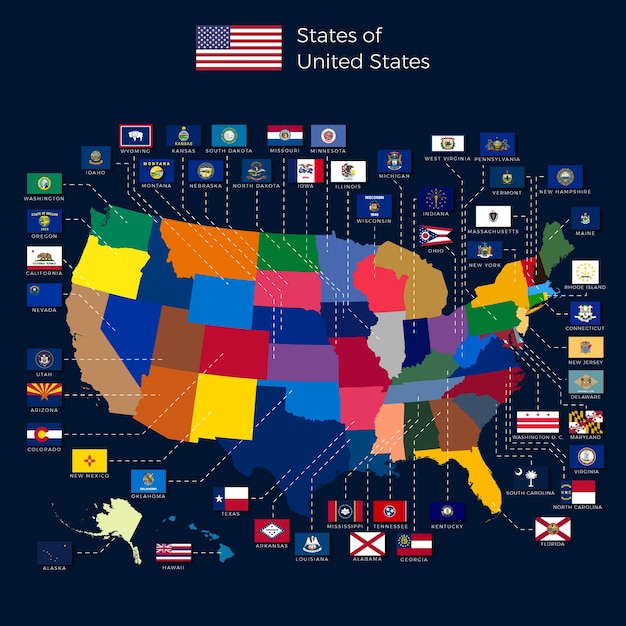Universal Pre-K Programs: A Major Policy Shift Across US States

Universal pre-kindergarten (pre-K) programs are gaining traction across US states, representing a major policy shift that could significantly impact early childhood education, parental involvement, and long-term educational outcomes.
The growing movement toward universal pre-K programs in the United States signifies a potential transformation in early childhood education. As more states explore and implement these programs, it’s crucial to examine the potential impact of this major policy shift: states consider universal pre-k programs – what’s the potential impact? on families, educators, and the future of education.
The Rising Tide of Universal Pre-K
Universal pre-K is no longer a fringe idea. Several states are seriously considering making free pre-kindergarten available to all 4-year-olds (and sometimes 3-year-olds), regardless of income. This represents a significant investment in early childhood education and reflects a growing recognition of its importance.
What is Universal Pre-K?
Universal pre-K aims to provide access to high-quality preschool programs for all children, typically those aged three or four. This contrasts with targeted programs, which focus on serving low-income families or children with special needs.
States Leading the Charge
States like California, Vermont and New Mexico are taking steps to expand their access to early childhood education, aiming to give all families access as soon as possible. These states are exploring different funding models and program designs to best meet the needs of their communities.

This push for universal access to Pre-K programs can have a profound economic impact on working families, ensuring the next generations have access to adequate education.
- Increased school readiness among children
- Reduced achievement gaps between different socioeconomic groups
- Greater workforce participation for parents
- Long-term positive effects on educational attainment and future earnings
By investing in high-quality preschool programs, proponents argue, states can reap significant social and economic benefits in the long run. This makes universal access to Pre-K programs an essential policy change that could dictate the future of education for years to come.
Potential Benefits for Children and Families
The expansion of universal pre-K programs holds promise for children, families, and society as a whole, but it’s important to understand what benefits families and children may experience.
Early Learning Foundations
High-quality pre-K programs provide children with a strong foundation in literacy, math, and social-emotional skills. These early learning experiences can set the stage for future academic success and reduce the likelihood of needing remedial services later on.
Closing the Achievement Gap
Children from low-income families often start kindergarten behind their more affluent peers. Universal pre-K can help close this achievement gap by providing all children with access to enriching early learning experiences.

- Affordable childcare options for working families
- Reduced stress and financial strain on parents
- Increased opportunities for parents to pursue education or employment
- Stronger family-school partnerships
The long-term social, economic, and personal benefits of universal pre-K programs can be truly transformative. These are all benefits to consider as states continue to debate on the implementation of an agenda built around early childhood education.
Challenges and Considerations for Implementation
While the concept of universal pre-K is appealing, there are several challenges and considerations that states must address to ensure successful implementation.
Funding and Sustainability
Providing high-quality preschool to all children requires a significant financial investment. States must identify sustainable funding sources and develop efficient program models to ensure the long-term viability of universal pre-K. Some programs opt for different funding approaches, while others try to leverage public and private funds. All options need to be exhausted when guaranteeing access to all children.
Quality Standards and Teacher Training
The quality of pre-K programs is crucial for achieving positive outcomes. States must establish and enforce rigorous quality standards, including teacher qualifications, curriculum guidelines, and classroom environments.
Addressing Equity and Access
Universal pre-K programs should prioritize equity and access for all children, especially those from underserved communities. States must address barriers to enrollment, such as transportation, language, and cultural differences, to ensure that all children have the opportunity to participate.
- Aligning pre-K curriculum with kindergarten standards
- Providing professional development opportunities for teachers
- Engaging families in their children’s learning
- Establishing data systems to track student progress and program effectiveness
In conclusion, it can be stated that with proper planning and implementation, universal pre-Kindergarten programs can serve as an essential tool for states looking to invest in the future generation.
The Role of Teachers and Educators
The success of universal pre-K programs hinges on the availability of well-trained and dedicated teachers and educators. These professionals play a vital role in creating engaging and stimulating learning environments for young children. The importance of qualified pre-K teachers cannot be overstated.
Attracting and Retaining Qualified Teachers
States must invest in strategies to attract and retain qualified pre-K teachers, such as competitive salaries, comprehensive benefits, and opportunities for professional growth. Early childhood educators are a crucial resource we must invest in.
Providing Ongoing Professional Development
Teachers need ongoing professional development to stay up-to-date on best practices in early childhood education. States should provide access to high-quality training programs and mentoring opportunities.
Creating Supportive Work Environments
Pre-K teachers often face challenging working conditions, including large class sizes, limited resources, and demanding workloads. States can support teachers by creating positive and supportive work environments.
States need to work closely with teachers to build the programs they best see fit for their communities. By collaborating together, successful results can be achieved.
- Collaborating with families to support children’s learning
- Implementing evidence-based teaching strategies
- Assessing children’s progress and adjusting instruction accordingly
- Creating inclusive and welcoming classrooms for all children
Teachers serve on the frontline when it comes to universal pre-K programs. The investment in their role is an investment in the efficacy of the program as a whole.
Long-Term Impacts on Society
The benefits of universal pre-K extend far beyond individual children and families. These programs have the potential to create positive long-term impacts on society as a whole. As the quality of the programs increases, so does the potential positive impacts to society.
Increased Educational Attainment
Children who attend high-quality pre-K programs are more likely to graduate from high school and attend college. This can lead to a more educated and skilled workforce.
Reduced Crime Rates
Studies have shown that early childhood education can reduce crime rates in the long run. Children who receive high-quality early learning experiences are less likely to engage in criminal behavior later in life.
Boosting Economic Growth
Universal pre-K can boost economic growth by increasing workforce participation, reducing healthcare costs, and generating higher tax revenues. By ensuring all children have access to high-quality early education, universal access to Pre-K programs can provide communities to thrive.
- Strengthening communities and families
- Promoting social equity and inclusion
- Investing in the future of our nation
The potential is there for all communities to thrive under universal Pre-K programs. By taking advantage of this opportunity, society as a whole stands to benefit.
The Future of Universal Pre-K in the US
The movement toward universal Pre-K in the United States is gaining momentum, but the future of these programs remains uncertain. Several factors will shape the trajectory of universal Pre-K in the coming years.
Political Support and Public Opinion
Continued political support and positive public opinion are crucial for the expansion of universal pre-K. Advocates must continue to make the case for the importance of early childhood education and its potential benefits.
Research and Evidence-Based Practices
Ongoing research and evaluation are needed to identify the most effective practices in pre-K education. States should use evidence-based practices to inform their program design and implementation.
Collaboration and Partnerships
Successful universal pre-K programs require collaboration and partnerships between government agencies, community organizations, and the private sector. A collaborative approach can help ensure that programs are aligned with community needs and that resources are used effectively.
It’s a complicated topic that requires many partnerships to see success.
- Increased federal funding for early childhood education
- Greater emphasis on early learning standards and assessments
- More innovative program models and delivery systems
- A stronger focus on family engagement and support
The time to invest in tomorrow’s leaders is now. By providing access to Pre-K programs to all people through universal access, the nation stands a chance to boost the economy, lower the crime rate and build a highly educated and skilled workforce.
| Key Aspect | Brief Description |
|---|---|
| 📚 School Readiness | Pre-K boosts literacy, math, and social skills. |
| 👨👩👧👦 Family Support | Affordable childcare reduces stress on working parents. |
| 📈 Workforce Growth | More educated workforce leads to economic gains. |
| 💰 Funding Challenges | Sustainable investment is needed for program success. |
Frequently Asked Questions
▼
Universal pre-K provides access to high-quality preschool programs for all children, typically those aged three or four regardless of income. This is different from programs targeted at low-income families.
▼
Children gain essential skills, achievement gaps are closed, and families receive affordable childcare. There can also be long-term benefits, such as an increase to the economy and reduced crime rates.
▼
States must address funding and quality standards with teachers to ensure the program has sustainable financial investment within the community. If not properly managed, results could be negative.
▼
Ideally, programs are meant for low-income families and families looking for care options while they pursue schooling and educational attainment. The next generation becomes more highly educated and skilled.
▼
The future of Universal Pre-K programs rests on political support and collaboration. By implementing and practicing more creative program styles and systems, future support will grow.
Conclusion
As states grapple with the complexities of expanding early childhood education, the potential impact of universal pre-K programs cannot be overstated. From providing children with a strong start to supporting working families and strengthening communities, universal access to Pre-K programs holds the key to a brighter future. By addressing the challenges and embracing collaborative solutions, states can pave the way for a more equitable and prosperous society.





